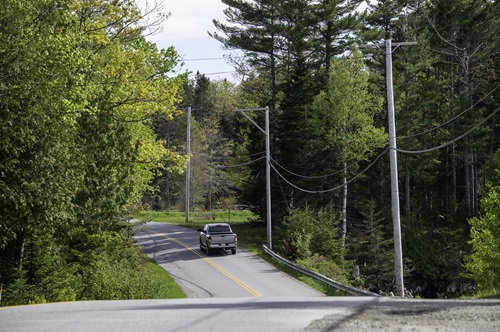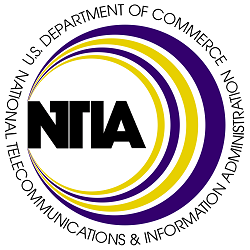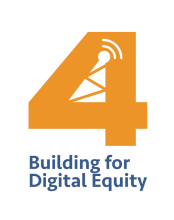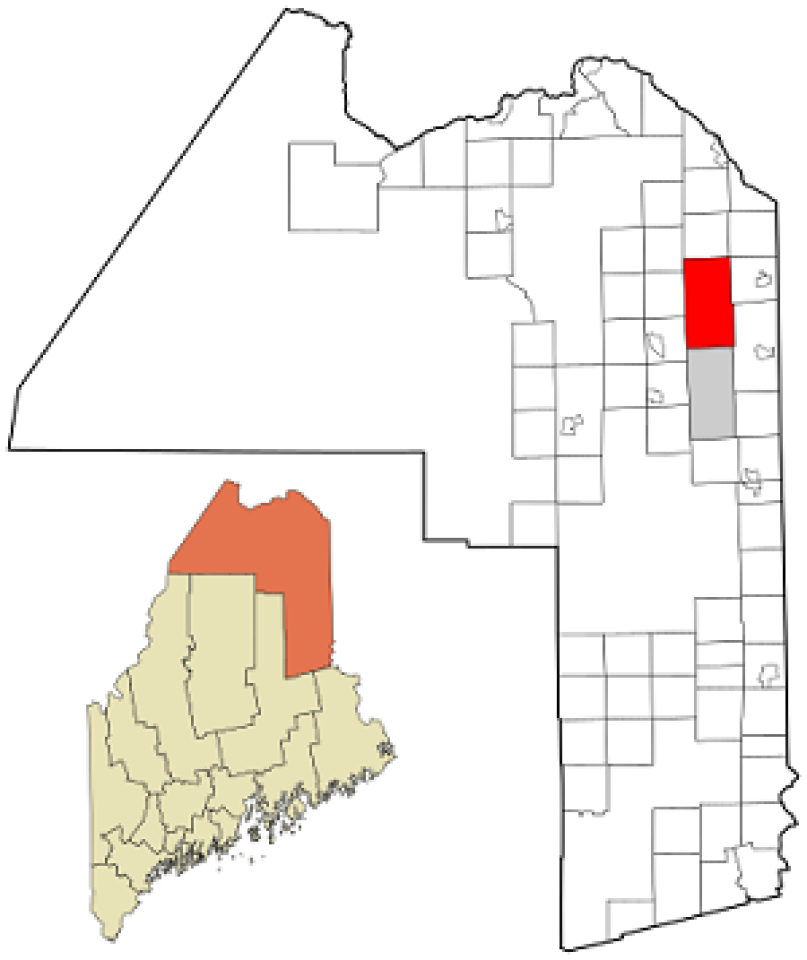
Fast, affordable Internet access for all.

Peppered by winding country roads and remote islands, Maine exemplifies the challenges in even deployment of affordable broadband. But thanks to tenacious island communities and forward-thinking state leadership, a growing roster of community-owned broadband networks are leading the charge toward affordable access in the Pine Tree State.
Peggy Schaffer, former executive director of the state of Maine's broadband mapping and expansion effort, ConnectMaine, has played a starring role in shoring up Maine’s broadband mapping data after years of federal dysfunction.
Schaffer’s well versed in the broad array of challenges faced by remote Maine communities, and says she’s long been impressed by the “scrappy” nature of Maine’s community-owned island deployments, which have faced down and overcome no limit of onerous challenges in an ongoing quest to finally bridge the state’s long standing digital divide.
Maine is currently ranked 49th in the U.S. in terms of resident access to gigabit-capable broadband service. Like so much of the country, the state is heavily dominated by regional monopolies that failed to uniformly deliver affordable, next-generation broadband, despite decades of federal subsidies, regulatory favors, and tax breaks.
Now local Maine communities are taking matters into their own hands, beginning with long-neglected island residents no stranger to unique logistical challenges.

‘It’s A Story Of Perseverance’

This week on the show, Christopher is joined once again by Sean Gonsalves, Associate Director for Communications for the Community Broadband Networks initiative at the Institute for Local Self-Reliance. After a short stop to talk about the establishment of a new municipal network in Timnath, Colorado, Christopher and Sean get down to talking about the BEAD 5-Year Plans that states are filing with NTIA to get their hands on the first tranche of what will be an historic pot of federal funds for new broadband investment.
Some states, like Maine and Vermont, Sean shares, are doing lots right: setting high bars for new infrastructure, listening to communities about their needs, folding in digital equity initiatives, and thinking about how to reach the last households that BEAD will fall short of. Others, like Pennsylvania, seem written with the intent to waste public money and leaves tens of thousands of households stranded with poor or no service - in other words, exactly what the monopoly cable and telephone companies want.
This show is 37 minutes long and can be played on this page or via Apple Podcasts or the tool of your choice using this feed.
Transcript below.
We want your feedback and suggestions for the show-please e-mail us or leave a comment below.
Listen to other episodes here or view all episodes in our index. See other podcasts from the Institute for Local Self-Reliance here.
Thanks to Arne Huseby for the music. The song is Warm Duck Shuffle and is licensed under a Creative Commons Attribution (3.0) license.
The key for states to unlock their portion of the $42.5 billion in federal BEAD funds is the submission and approval of their Five Year Action Plans and Final Proposal. The infrastructure law requires states to first file an action plan, and then prepare more detailed Initial Proposals, allowing residents and stakeholders to submit public comments.
So far, 14 states have filed their Five Year Action Plans with the National Telecommunications and Information Administration (NTIA), the Treasury Department agency in charge of allocating the funds to each state and U.S. territory. According to the NTIA’s website, Maine, Louisiana, Delaware, Georgia, Hawaii, Idaho, Kansas, Montana, North Carolina, Ohio, Oregon, Pennsylvania, Utah, and Vermont have all filed their draft Five Year Action Plans.

The states that are now in the process of completing their Initial Proposals include: Delaware, Kansas, Louisiana, Montana, Ohio, Tennessee, Vermont, Virginia and Wyoming.
Today, we will look at two states (Maine and Louisiana) and follow up with the others as we are getting a clearer picture of how each state intends to put this historic infusion of federal funds to use.
Maine

This week on the podcast, Christopher is joined by Associate Director for Communications Sean Gonsalves to check in on the move towards a citywide open access fiber-to-the-home (ftth) network in Bountiful, Utah, an expanding institutional network in Fairhaven, Massachusetts, and widespread support among small Maine towns that public dollars should go to publicly owned networks.
Along the way, they chat about the astroturf misinformation campaign being run by the Utah Taxpayer's Association, how a city negotiated a capital fee it's using to build its own network and get out from under Comcast's thumb, and the growing momentum behind Maine's Broadband Utility Districts (BUD) and their quest to improve competition and Internet access for residents.
This show is 38 minutes long and can be played on this page or via Apple Podcasts or the tool of your choice using this feed.
Transcript below.
We want your feedback and suggestions for the show-please e-mail us or leave a comment below.
Listen to other episodes here or view all episodes in our index. See other podcasts from the Institute for Local Self-Reliance here.
Thanks to Arne Huseby for the music. The song is Warm Duck Shuffle and is licensed under a Creative Commons Attribution (3.0) license.

This week on the podcast, Christopher tunes in from Broadband Communities in Houston for an interview with Mark Ouellette, CEO of Axiom Technologies. Axiom is an Internet Service Provider based in Machias, Maine, the county seat for the large, rural county of Washington along the state’s eastern border.
Christopher and Mark discuss Axiom’s publicly-owned and accountable network model, and its work across 12 projects, of which the ISP is on its third build. They also discuss the entrepreneurial spirit and community-mindedness of Maine’s small ISPs, reflected in Mark’s ultimate mission: to give people a connection that allows them to create their own economy.
This show is 29 minutes long and can be played on this page or via Apple Podcasts or the tool of your choice using this feed.
Transcript below.
We want your feedback and suggestions for the show-please e-mail us or leave a comment below.
Listen to other episodes here or view all episodes in our index. See other podcasts from the Institute for Local Self-Reliance here.
Thanks to Arne Huseby for the music. The song is Warm Duck Shuffle and is licensed under a Creative Commons Attribution (3.0) license.
Two months after President Biden’s belated and long-stalled Federal Communications Commission (FCC) nominee withdrew her nomination after a year-long attack campaign against her, today at the Broadband Communities Summit in Houston, Texas, Gigi Sohn announced her next move: Sohn will serve as the first Executive Director for the American Association of Public Broadband (AAPB).
A non-profit organization formed by a group of municipal officials, AAPB’s mission is to advance advocacy efforts on behalf of publicly-owned, locally-controlled broadband networks. Since the organization first announced its formation at the Broadband Communities Summit in May of 2022, it has been working to educate federal and state policymakers who “have turned to the telecom lobby for help and are receiving biased guidance” on the community broadband networks approach, just as $42.5 billion from the Infrastructure Investment and Jobs Act (IIJA) is set to flow to state governments to expand high-speed Internet access this summer.
During a keynote luncheon at the summit, Sohn was joined by AAPB founding board members Bob Knight and Kimberly McKinley on the main stage for a candid discussion in which she reflected on the state of Internet access in the U.S. and her experience that led to her to withdraw her nomination to the FCC. Near the end of the luncheon she announced her new role with AAPB, which was greeted by a standing ovation from the hundreds of attendees in the audience.
Freedom to Choose Community Broadband Future
The announcement was followed by a press briefing where she elaborated on her vision for AAPB.
“I will be the first Executive Director of the American Association of Public Broadband. Until now, there has not been a membership-based advocacy organization that works to ensure that public broadband can grow unimpeded by anti-competitive barriers. That’s despite the success of public broadband to help places like Chattanooga and the Massachusetts Berkshires transform from sleepy hamlets to vibrant centers of economic opportunity, education and culture,” she said at the press briefing.
This week we are giving you a double dose of our new Building For Digital Equity podcast. In Episode 4, our research associate Emma Gautier interviews Kim Ilinon and Ella Silvas, two Interactive Media Design students from the University of Washington-Bothell.
Kim and Ella, who both gave lightning round presentations at Net Inclusion 2023 in San Antonio last month, discuss how they got into digital equity from a design background and what they have learned about who is doing digital equity work in Washington state.
You can watch their 3 minute lightning talk here:
And you can listen to the 12-minute long B4DE podcast with Kim and Ella here:
Also available is Episode 5 of the B4DE podcast, which features Susan Corbett, Executive Director of the National Digital Equity Center, an organization that has long been involved in policy around Internet access and digital equity both in Maine and across the United States.
ILSR’s Community Broadband Networks Director Christopher Mitchell discusses with Susan how she got started doing digital equity work in 2005 as the owner of a small ISP in rural Maine. They also explore how the National Digital Equity Center uses a database and surveys to track the progress of their programs to ensure they are effective, having launched initiatives around distributed devices, skill building, and now involved with the Maine Digital Equity Plan.
That episode is 14 minutes long, which you can tune into here:

Susan Corbett is the Executive Director of the National Digital Equity Center and has long been involved in policy around Internet access and digital equity both in Maine and across the United States. Susan and I chatted at Net Inclusion about how she got going in this space in 2005 as the owner of a small ISP in rural Maine.
We also discuss how they use a database and surveys to track the progress of their programs to ensure they are effective. They've worked on distributed devices, skill building, and more and are now involved with the Maine Digital Equity Plan.
Finally, we discuss some of the changes that Susan has seen over the years.
This show is 14 minutes long and can be played on this page or using the podcast app of your choice with this feed.
Transcript below.
We want your feedback and suggestions for the show-please e-mail us or leave a comment below.
Listen to other episodes here or see other podcasts from the Institute for Local Self-Reliance here.
Thanks to Joseph McDade for the music. The song is On the Verge and is used per his Free-Use terms.
Legislative changes and funding in Maine in the last year have made it easier for local communities to consider municipal broadband options. While incumbent providers have been pushing back, local communities are pulling themselves forward.
Setting the Stage
A champion of community-driven broadband, Andrew Butcher, president of the newly created Maine Connectivity Authority (MCA), is leading the state's $250 million effort to expand broadband access in Maine, as Butcher discussed the state's new strategy in our Community Broadband Bits podcast last January. That amount includes $20 million in state funds from the Maine Jobs and Recovery Plan and $130 million in federal funds from the American Rescue Plan. The state will also be getting in excess of $100 million from the Infrastructure Investment and Jobs Act.
There has been push back from national providers who have campaigned at the local level to encourage local governments and policy makers to stop community broadband in its tracks, as we have covered here and here. And yet, despite those efforts, a number of communities across the state have started to make strides toward building publicly-owned, locally-controlled networks.
Here is a snapshot of the activity:
Western Maine: Mahoosuc Region
Last March, Caribou, Maine city council members expressed unanimous support for a charter amendment allowing the Caribou Utilities District to establish a broadband infrastructure division. It was just the latest move in a multi-year quest by the city to finally deliver affordable fiber broadband access to every last city resident.
Groundwork for the effort was laid one year ago, when city council members approved using $159,000 in American Rescue Plan Act funds to craft a broadband engineering study with the help of Caribou’s Business Investment Group and executives from local ISP Pioneer Broadband.
Late last March, the Maine Senate unanimously approved LD 1949: “An Act to Amend the Caribou Utilities District Charter to Include Broadband Services,” which formally, as the name makes clear, provided approval for the CUD to expand its services into broadband access.
Now the hard work begins.
The plan as it currently stands is to build an open-access dark fiber network to every unserved Caribou residential and business location. The city would own the network, but private ISPs would provide last mile service to customers.

“We would like two or more ISPs to provide citizens with a choice of providers,” Hugh Kirkpatrick, Caribou Utilities District general manager, recently told the Bangor Daily News. “Competition should keep monthly prices lower and customer service higher.”